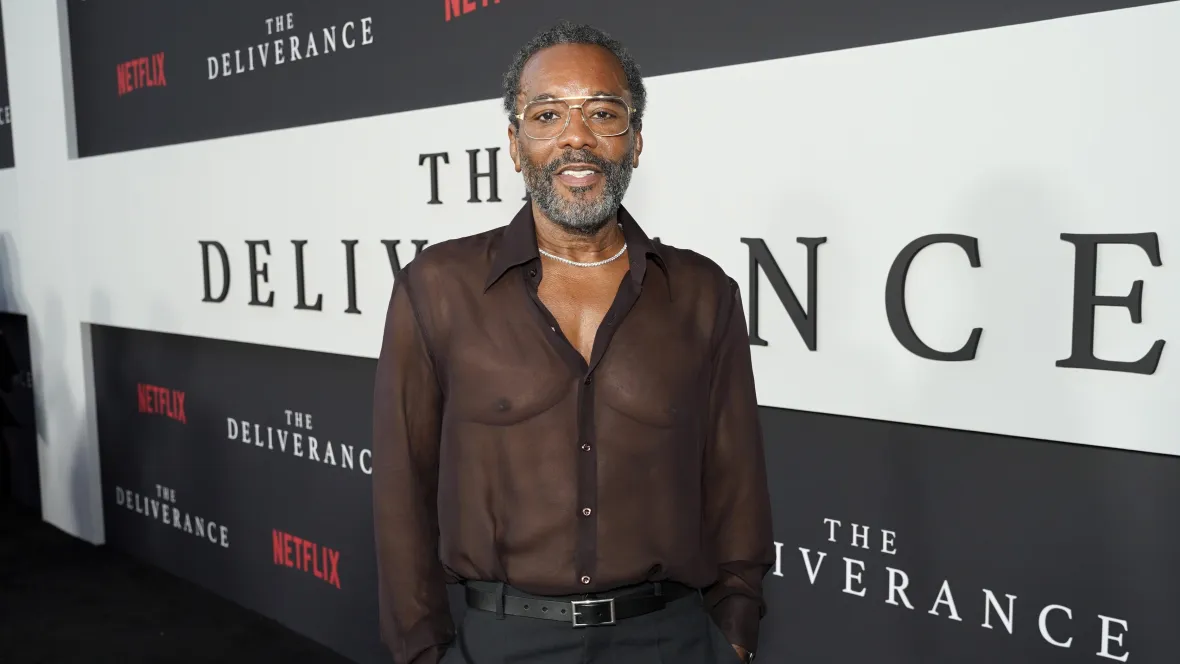‘Not today, Satan’: Lee Daniels on the spiritual work behind the ‘The Deliverance’ and casting Glenn Close
Lee Daniels attends Lee Daniels’ “The Deliverance” Los Angeles Premiere at Netflix Tudum Theater on Aug. 28, 2024, in Los Angeles, California. (Photo by Presley Ann/Getty Images for Netflix)
Amid countless Glenn Close memes, Lee Daniels pulls back the curtains on his controversial Netflix film “The Deliverance.”
Award-winning director and producer Lee Daniels has added a new genre to his catalog with the release of “The Deliverance.” Trying his hand at a suspenseful horror film, Daniels’ new Netflix film reimagines the true story of Latoya Ammons, who claimed her three children became possessed by a demonic spirit while living in Gary, Indiana, in 2011. Known as the “Demon House” case, Daniels admits that he initially “steered away” from the film for spiritual reasons.
“I know the spirit works through me. So what kind of spirits do I want on me? So I was just like, ‘No, I’m not [going to do it],’” Daniels told The Hollywood Reporter, explaining how Ammons’ story sat with him forever. “We had never seen this story, through this lens of this African-American woman, onscreen, and I just felt we’re in such dark times, and I don’t think people really know how dark of times we are in. And I felt like I needed to get reconnected to my higher power.”
In addition to impacting his decision to make the film, the “Precious” director’s spirituality also motivated a series of decisions made within the film and its set. Understanding the history of strange incidences occurring during the production of horror films, Daniels reportedly had a deliverer on set the entire time to not only guide the cast but also to “protect [the cast and crew] from the set.” After his mother additionally warned of the spiritual implications of recreating the story, the director revealed that he and the cast and crew prayed every day.
“Listen, I read those books about the making of “Poltergeist” and the making of “The Exorcist.” And I’m like, ‘Nope, not today, Satan. Ain’t happening today up in this motherf***.’ So we prayed every day,” Daniels said, per Variety. “We figured out a system where I could say, “I don’t mean to be offensive, but for those of us that aren’t into prayer, feel free to leave the set.” And there were a few people that did, but most people, most of the 200 or so crew [members] knew that they wanted to be protected.”
Recommended Stories
The director’s spiritual journey also impacted some of his casting choices. As previously reported by theGrio, Daniels’ new Netflix film marks his second project with actress Mo’Nique after their public fallout in 2009.
“[I learned] that I had to forgive and I had to show forgiveness. I had to apologize. And not only apologize but apologize publicly. And not only apologize publicly but say, ‘Hey girl, let’s hit it again.’ But not only, ‘let’s hit it again,’ but let me put you in something that’s the complete opposite of what it is that you did [in ‘Precious’],” he told theGrio. “I get emotional even talking about it now, because it was a reunion with my sister that I can’t even talk about. It felt cozy. It felt like, ‘I’m never going to let [a feud] happen again.’”
The film also stars Andra Day, who Daniels worked with on “The United States vs. Billie Holiday,” Caleb McLaughlin, and, controversially, Glenn Close. The 77-year-old Oscar nominee’s role as Alberta, a white woman with a biracial Black daughter and Black grandchildren, sparked controversy and endless memes on social media.
“Every Black person knows an Alberta. She’s part of the fabric of our community, but we’ve never seen her on screen before. Thank you Glenn for bringing her magnificently to life,” Daniels wrote on X, defending his casting choice.
However, many viewers were not fans of Close’s inclusion in the film, particularly as the real-life Alberta was an unambiguously Black woman.
“This n*** added a white woman to a true story that did not involve a white woman, then said it’s because white women like her are part of the FABRIC OF THE BLACK COMMUNITY. He is objectively worse than Tyler Perry I’m sorry…he is like if Tyler Perry & Kenya Barris had a baby,” one user wrote.
Another added: “[T]here is literally NO scenario ever where a non-black person is the actual “fabric” of a black cultural community, literally ever…especially when black grandmothers and black matriarchs have been central within our community since the beginning.”
Despite the film’s critiques — and ongoing debate about Close’s character — Daniels seems to be enjoying some of Black Twitter’s response to it, laughing along with users on X. Ultimately, the director hopes “The Deliverance” motivates people spiritually.
“I’m here to scare you to your higher power,” he told theGrio. “For me, it’s Jesus. For [others], it could be Allah or Buddha, or whoever your higher power is. But to bring you to a higher spirituality, because I found myself not in a place of [a] spiritualist prior to this [film].”

